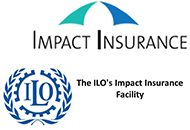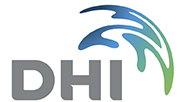PHASE II
MCII conducted an evaluation of the project in early 2014 and discussions took place between MCII and CCRIF from this time towards increasing the uptake of the LPP in the three pilot countries. Also, building on interest expressed by stakeholders throughout the region, CCRIF is pursuing options for provision the LPP to other Caribbean countries.
Phase II began in November 2016 and will continue until 2019. The main expected outcomes of this phase are:
- To increase the number of low-income persons in the region who have access to climate risk insurance
- To increase the number of companies in the region offering climate risk insurance policies as well as microinsurance products
- To enhance sustainability of the initiative by increasing the scale through uptake by large target groups (as opposed to increasing uptake over time)
Phase II is implemented by MCII together with its partners, CCRIF SPC (formerly the Caribbean Catastrophe Risk Insurance Facility), DHI Water & Environment, the International Labour Organization’s (ILO's) Impact Insurance Facility and Munich Re. Funding for the project has been provided by the German Federal Ministry for the Environment, Nature Conservation and Nuclear Safety (BMU) under the International Climate Initiative.
The countries identified by MCII for participation in Phase II of the project are Jamaica, Grenada and Saint Lucia, for refinement and deepening of current efforts, and Belize and Trinidad and Tobago.
Phase II brings new possibilities as there is now a general and growing excitement around parametric insurance which also has been fuelled by the 2017 Hurricanes Irma and Maria. Phase II continues to maintain the value proposition of the LPP – speed of payout, support for vulnerable persons and making the product more affordable.
ALIGNMENT OF PROJECT WITH GLOBAL INITIATIVES
Phase II is expected to support the Climate Risk Insurance in Developing Countries initiative of the G-7 in which the group in June 2015 announced action to support efforts by vulnerable developing countries to manage climate change-related disaster risk through insurance, with an aim to increase the number of people with access to direct or indirect climate risk insurance coverage by up to 400 million by 2020. The white paper from this summit states that this commitment will build upon existing risk insurance facilities such as CCRIF. The focus on climate insurance for low-income and vulnerable populations received further attention at the UNFCCC Conference of Parties (COP21) in Paris in December 2015, where United States President, Barack Obama announced a pledge of US$30 million to support the expansion of CCRIF and other climate insurance initiatives to help vulnerable populations rebuild stronger after climate-related disasters. Microinsurance is a cornerstone of the larger area of climate insurance, one that holds promise to reduce the impacts of climate change by enhancing resilience of low-income people.
Phase II is expected to support the Climate Risk Insurance in Developing Countries initiative of the G-7 in which the group in June 2015 announced action to support efforts by vulnerable developing countries to manage climate change-related disaster risk through insurance, with an aim to increase the number of people with access to direct or indirect climate risk insurance coverage by up to 400 million by 2020. The white paper from this summit states that this commitment will build upon existing risk insurance facilities such as CCRIF. The focus on climate insurance for low-income and vulnerable populations received further attention at the UNFCCC Conference of Parties (COP21) in Paris in December 2015, where United States President, Barack Obama announced a pledge of US$30 million to support the expansion of CCRIF and other climate insurance initiatives to help vulnerable populations rebuild stronger after climate-related disasters. Microinsurance is a cornerstone of the larger area of climate insurance, one that holds promise to reduce the impacts of climate change by enhancing resilience of low-income people.






